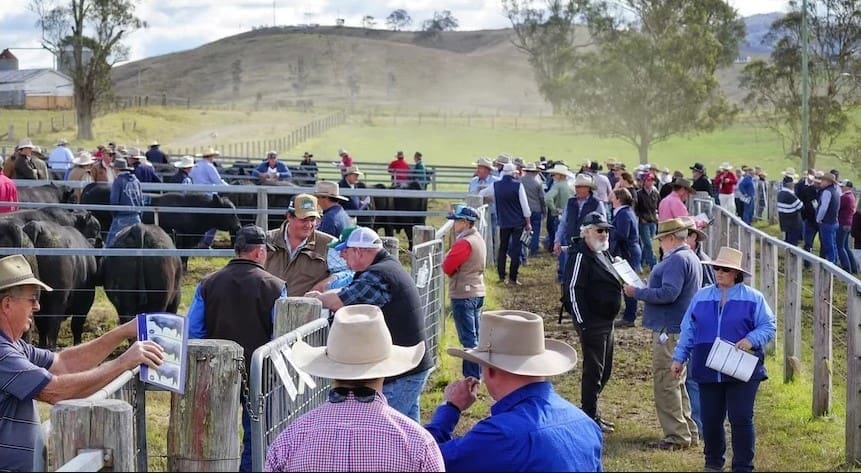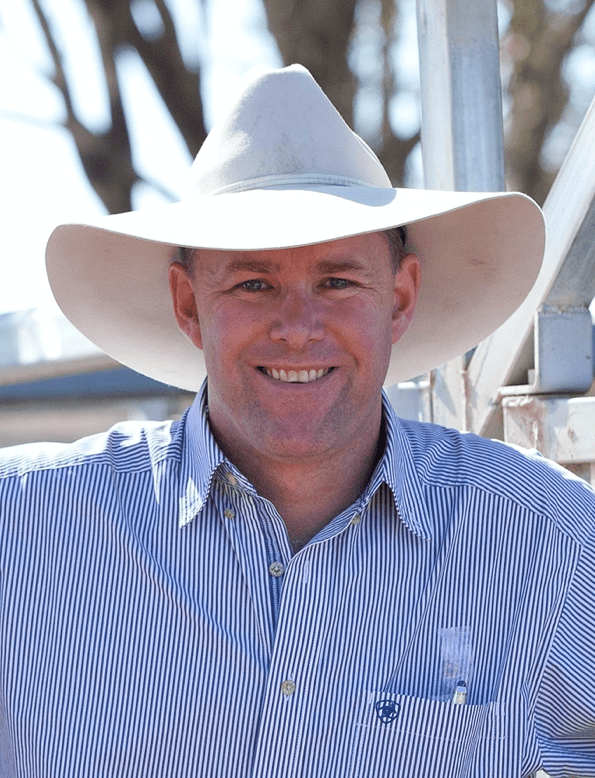
CHOOSING a bull breeder is a significant undertaking for any commercial cattle producer.
The choice of a sire will be reflected over several generations in a herd. While most producers are considering the genetics of the sires they are purchasing, where that bull comes from and who bred him are key considerations in the selection decision.
In recent times I have been approached at industry field days and gatherings by agents and commercial producers seeking advice on where to buy their next sires. These conversations are often framed around an idea that a producer should be rotating their bull breeders every three to five years.
In exploring this concept further, it becomes very clear there is not necessarily a clear reason for wanting to make a change. Some are often vaguely associated with a desire to have ‘fresh genetics’, or to try new things, or because their current bull breeders’ bulls are “a bit too dear.”
There are some fundamental flaws in this line of thinking.
The primary flaw is associated with the vagueness of direction influencing the choice to rotate. Often, when pressed, the breeder or the agent making the inquiry finds it difficult to articulate the breeding goals for the business. It’s often not clear what they want to achieve from the program in terms of commercial traits, or greater market compliance or at the fundamental basis of increasing kilograms of beef per hectare.
Failing to have clarity around breeding objectives is one of the greatest impediments for many beef breeding programs. Some data publicised around the MLA Bred Well Fed Well workshops several years ago highlighted the low level of producers – some 15pc of those attending the workshop – who actually had clear breeding objectives.
In simplest terms, a breeding objective should be able to describe what a producer needs to do in order to move their program from its current level of performance to a desired outcome. That outcome should be defined around production and ultimately profit for the business.
‘Prefix popularity’
The choice to rotate bull breeders can often be a result of this lack of clear direction. There are many producers who shape their breeding decisions around the perceived success or popularity of a particular prefix.
However, after a few years, they change to another prefix in the expectation that moving and finding new sires may offer some additional advantage they are not currently getting from their current breeder.
However, without clear objectives to focus on, it’s difficult to objectively determine what real advantage changing breeders will bring. Often, the change is to move to another breeder within the same breed. Often all that changes is the prefix, with the bulls on offer being very similar genetically to what is available with their current breeder – especially in breeds where AI and ET are widely used.
The disadvantage to making regular rotations is the variation that a producer introduces to their herd. Each seedstock breeder has different objectives, and potentially different directions. The cow base which is influential to the consistency of the bulls on offer each year will also be different. These differences are then reflected in the bulls and this in turn plays out in a commercial producer’s herd.
Many of the herds I have worked in where there is regular rotation of bull breeders, have a lot of variation within their herd. This requires greater effort to select replacement females and manage the variation to achieve consistency in the herd and move towards more efficient and effective management.
People business
Developing a relationship with a bull breeder is also much more difficult to achieve if there are regular change-overs occurring.
Most seedstock producers describe their business as a people business. They look to produce genetics to suit their clients and want to become engaged in the future success of the herds that their bulls go to.
Being able to talk and share feedback on bulls and the performance of animals as in the interests of the breeder as much as it is for the commercial producer. Without this relationship, there is little benefit longer term for wither party.
Again the decisions to change breeders seem to be made where producers have not developed a relationship with their current breeders. Being uncomfortable or reluctant to talk about their direction or the type of bull they want, or need can prevent this dialog.
Being able to share their needs and objectives with their breeder may help them achieve much better results than could be achieved by continually changing breeders.
Of course there are times when a producer may be unable to secure a bull from their preferred breeder, due to price or supply.
Having a relationship with that bull breeder can open up a discussion where recommendations can be made about alternative breeders who have similar cattle that would suit a producer’s purpose. These recommendations are much harder to obtain without the breeder and the producer understanding each other.
If change is necessary, do it well before the sale. Make some time to explore potential breeders’ programs. Meet with the breeder, look at their cow herd and discuss the direction that herd is going in.
Several years ago at an industry field day, a bull breeder’s top piece of advice to producers was “Get to know what direction your bull breeder is going in, because if they are going nowhere, you will go nowhere with them.”
If you do need to change breeders, or you are thinking about it, make the time to know their direction and be sure it lines up with your own.
 Alastair Rayner is the Principal of RaynerAg, an agricultural advisory service based in NSW. RaynerAg is affiliated with BJA Stock & Station Agents. He regularly lists and sell cattle for clients as well attending bull sales to support client purchases. Alastair provides pre-sale selections and classifications for seedstock producers in NSW, Qld and Victoria. He can be contacted here or through his website www.raynerag.com.au
Alastair Rayner is the Principal of RaynerAg, an agricultural advisory service based in NSW. RaynerAg is affiliated with BJA Stock & Station Agents. He regularly lists and sell cattle for clients as well attending bull sales to support client purchases. Alastair provides pre-sale selections and classifications for seedstock producers in NSW, Qld and Victoria. He can be contacted here or through his website www.raynerag.com.au
